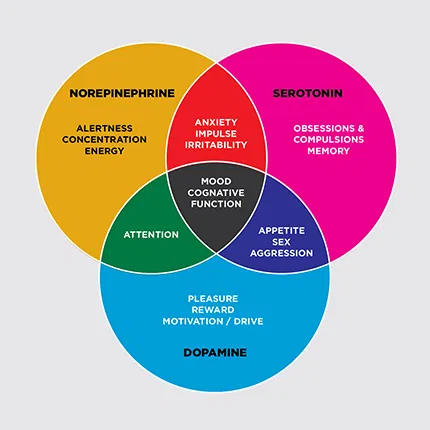
Introduction
We often hear about exercise as a way to build strength, lose weight, or improve heart health. But what many of us forget is that the psychological benefits of exercise are just as important. Exercise does not only shape the body; it shapes the mind.
When we move our body, we also change how we feel, think, and handle daily challenges. A balanced life is not only about physical health but also about emotional stability, reduced stress, and mental clarity.
In this blog, we will explore the everyday psychological benefits of exercise, why they matter, and how small daily habits can lead to big improvements in mental well-being.
https://www.healthline.com/nutrition/10-benefits-of-exercise
Exercise as a Natural Stress Reliever:
One of the most common is stress relief. When we exercise, the body releases endorphins, also called “feel-good hormones.” These hormones fight stress hormones like cortisol and make us feel calmer. Even a short walk or a few minutes of stretching can reduce tension and clear the mind.
Boosting Mood and Positivity:
Another everyday benefit of exercise is its power to improve mood. People who exercise regularly report feeling happier and more positive. Simple activities such as cycling, jogging, or yoga can reduce feelings of sadness and give a sense of accomplishment. This mood boost is one of the strongest psychological benefits of exercise we can enjoy daily.
Improved Sleep Quality:
Exercise helps regulate sleep patterns, which is important for mental balance. Poor sleep can lead to irritability, anxiety, and lack of focus. By exercising, we can sleep deeper and wake up fresher.
The connection between good sleep and mental clarity shows how closely linked the psychological benefits of exercise are to a balanced life.
Building Self-Confidence:
When we commit to regular exercise, we notice changes in energy, stamina, and appearance. This boosts self-confidence.
A person who feels strong physically often feels strong mentally too. Self-belief is one of the hidden psychological benefits of exercise that supports success in all areas of life.
Reducing Anxiety and Depression:

Doctors often suggest exercise as a natural treatment for anxiety and depression. Physical activity increases serotonin levels, which help fight negative thoughts. Even gentle movements such as walking in the park or stretching at home can bring relief.
The psychological benefits of exercise act like medicine for the mind.
Enhancing Focus and Productivity:
Exercise does not just reduce stress; it also sharpens focus. A short workout before work or study can improve concentration and creativity. Exercise increases blood flow to the brain, which helps with memory and learning. Among the many psychological benefits of exercise, improved focus makes daily life more balanced and productive.
Creating a Sense of Routine and Control:
When we add exercise to our daily routine, we gain a sense of discipline and control. This regular habit reduces feelings of chaos and builds mental strength. A balanced routine gives stability, which is one of the long-term psychological benefits of exercise for a healthier lifestyle.
Social Connection and Emotional Support:
Group exercises, sports, or even walking with a friend give us a chance to connect socially. Positive social interaction is deeply linked to psychological health.
By combining physical activity with relationships, we gain double benefits physical strength and mental happiness. This shows another dimension of the psychological benefits of exercise.
Coping Better with Challenges:
Life often brings stress, challenges, and setbacks. People who exercise daily are better able to handle such struggles. Exercise trains the mind to stay calm, patient, and resilient.
This coping ability is one of the most practical psychological benefits of exercise for everyday life.
Long-Term Mental Health Protection:
Regular exercise protects against future mental health issues. Studies show that people who stay active are less likely to face severe depression or chronic stress.
The psychological benefits of exercise work as a shield, keeping our mental health strong throughout life.
Practical Tips to Enjoy the Psychological Benefits of Exercise:
Start with small steps like a 10-minute walk.
Choose an activity you enjoy dancing, cycling, or yoga.
Stay consistent rather than focusing only on intensity.
Combine exercise with breathing practices for added calmness.
Track your progress to stay motivated.
FAQs:
Q1: What are the main psychological benefits of exercise?
Answer:
The main psychological benefits of exercise include reduced stress, better mood, improved focus, higher self-confidence, and protection against anxiety and depression.
Q2: How much exercise is needed for mental health benefits?
Answer:
Even 20, 30 minutes of moderate exercise a day is enough to enjoy positive changes in mood and stress levels.
Q3: Can simple activities like walking give psychological benefits?
Answer:
Yes. Walking daily can lower stress, improve mood, and bring mental clarity.
Q4: Does exercise really help with anxiety?
Answer:
Yes. Exercise reduces stress hormones and increases serotonin, which naturally fights anxiety.
Q5: Is group exercise better for mental health?
Answer:
Group exercise adds social interaction, which further enhances the psychological benefits of exercise.
The psychological benefits of exercise are powerful and far-reaching. From stress relief to improved mood, from better focus to long-term mental strength, exercise is not just about fitness it is about balance in life.
By adding even simple physical activities to our routine, we can transform our mind, reduce negativity, and build a healthier, more positive life every day.
